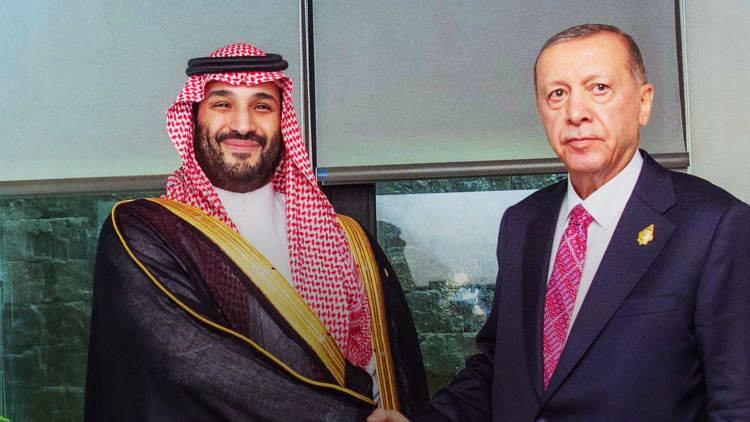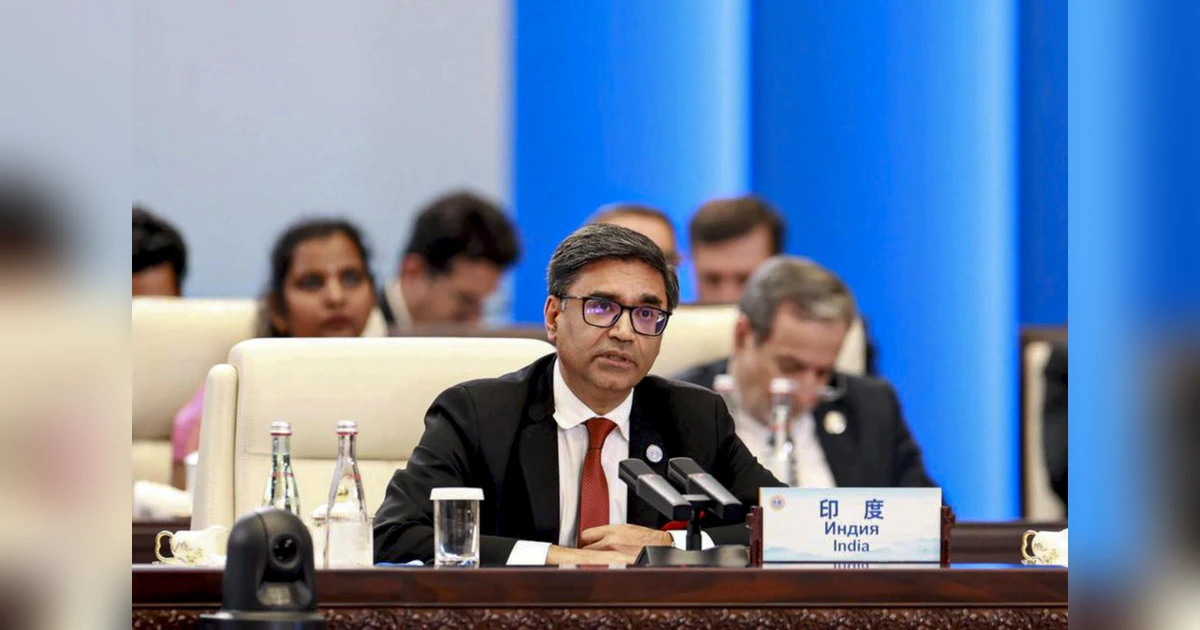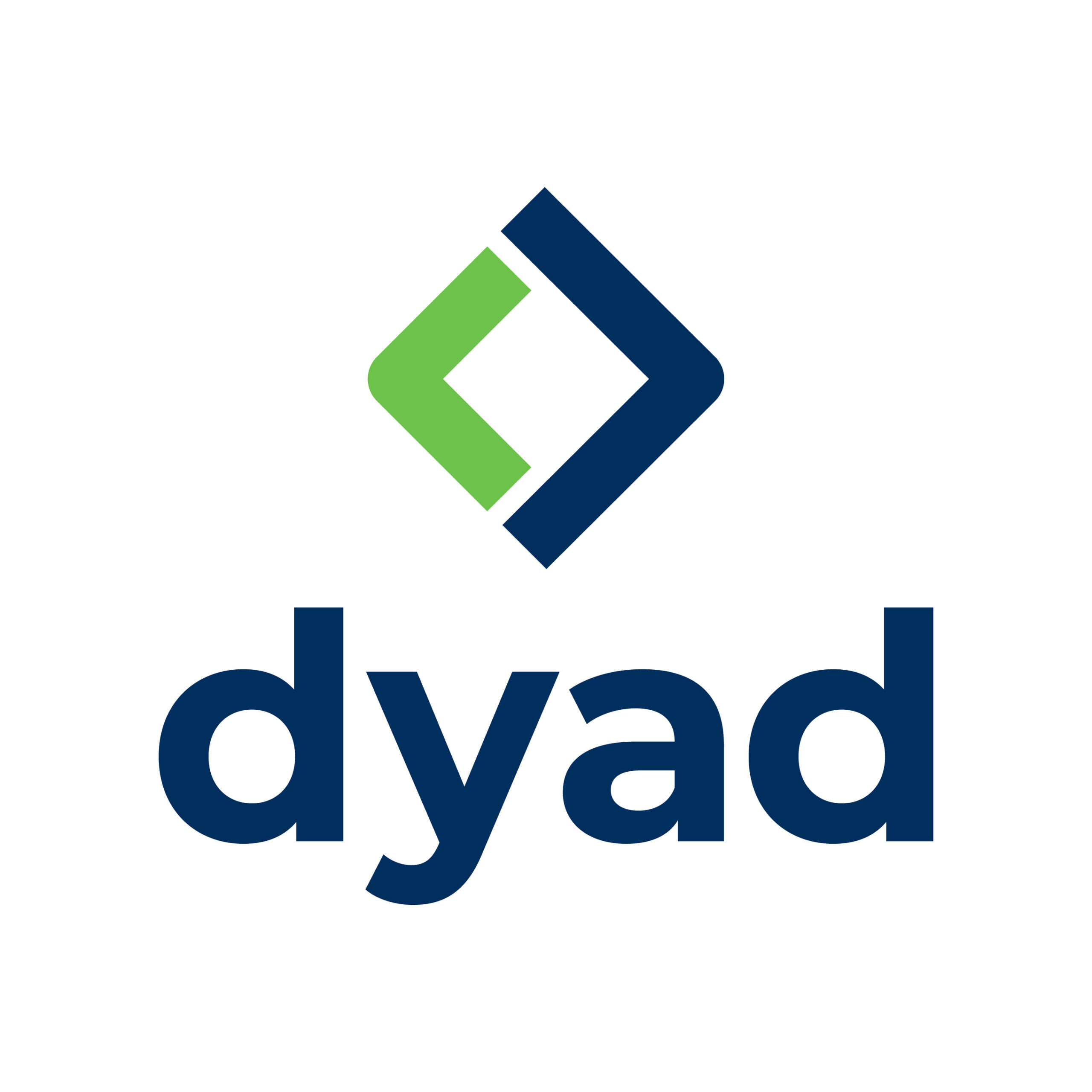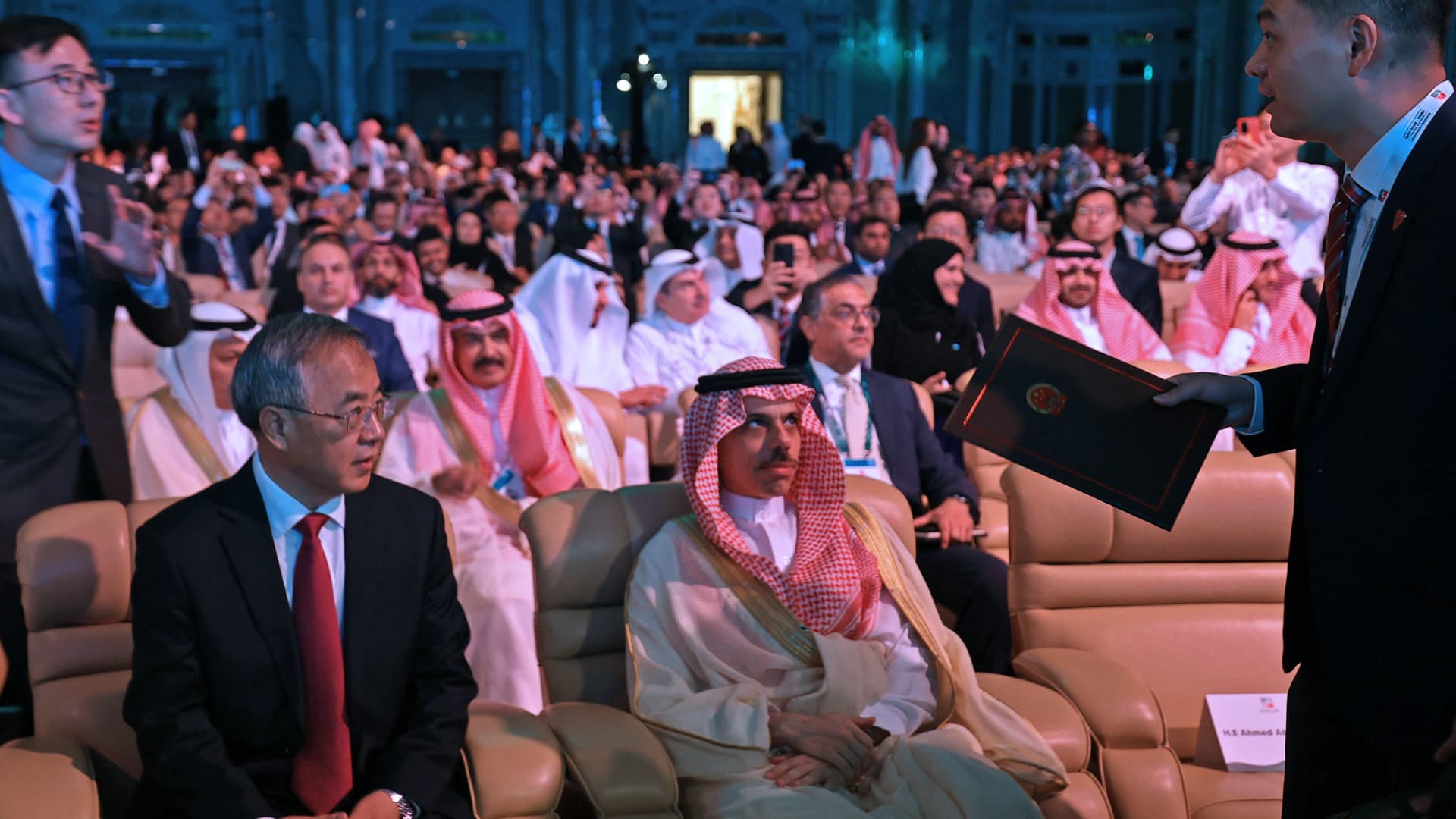Saudi Foreign Minister Faisal bin Farhan al-Saud (C-R) and Vice Chairman of the Chinese People’s Political Consultative Conference (CPPCC) Hu Chunhua attend 10th Arab-China Business Conference in Riyadh, on June 11, 2023.
Fayez Nureldine | Afp | Getty Images
BEIJING — Venture capitalists in China that once relied on U.S. investors are now holding court with Middle Eastern money.
A flurry of China-Middle East conferences and business visits in the last several months represent what’s expected to be a growing trend in international capital flows.
Many Middle East investors have discussed deals with Chinese venture capital funds in the last 12 months, according to sources at three Chinese firms with U.S. dollar-denominated funds. They requested anonymity because they are not permitted to speak publicly about the fundraising talks.
Although the money isn’t completely replacing U.S. investment, it’s expected to account for about 20% of all U.S. dollar funding by Chinese VCs, one of the sources estimated.
Middle East investors are actively looking for China opportunities, then investing at a small scale to test the waters, the source told CNBC this week, noting frontier tech, new consumer trends and biotech were popular industries of interest.
Bolstering the investment trend is a confluence of diplomatic, financial and economic developments.
China’s ties with the Middle East have warmed since Saudi Arabia and Iran restored diplomatic relations earlier this year — through discussions brokered by Beijing.
Meanwhile, U.S.-China tensions have simmered.
Those tensions and increased regulatory scrutiny in both countries prompted many U.S.-based investors to hold off on investments in Chinese venture capital funds. Those funds were typically denominated in U.S. dollars and invested startups would then go on to list on U.S. stock exchanges.
Middle East capital is looking to step in, especially as countries such as Saudi Arabia and Qatar look to diversify from dependence on fossil fuels.
However, many potential investments in Chinese funds are still in discussion, the venture capital funds said.
Trillions in assets
As of February 2022, Middle East investors’ allocation to North American assets were still clearly higher than Asia-Pacific ones, according to Preqin, an alternative assets research firm. Alternative assets include venture capital, but not publicly traded stocks and bonds.
That exposure is growing.
Preqin data showed the share of Middle East sovereign wealth funds’ investment in alternative assets worldwide roughly doubled between 2021 and the first half of 2022.
In all, the eight largest Middle East sovereign wealth funds had more than $3 trillion in combined total assets as of last year, according to the latest estimates available from Preqin.
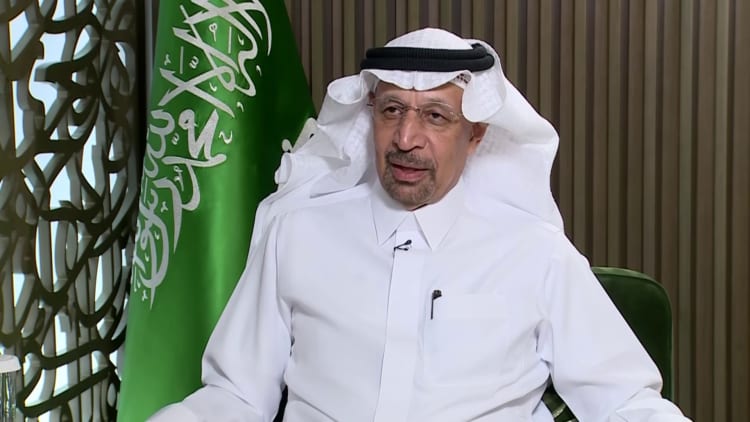
Saudi Arabia’s ties with China are shifting from being based on trade to a “core investment relationship,” Khalid Al-Falih, Saudi minister of investment, told CNBC’s Dan Murphy this week.
In addition to Saudi investment in oil refining and petrochemicals in China, Al-Falih noted investments in technology by the kingdom’s sovereign wealth fund, the Public Investment Fund, and private sector companies.
PIF has about $700 billion in assets under management, according to its website. The fund did not respond to a request for comment about the share of its China investments.
Investment in car technology
China is a major source of technology, a major source of business. Partnering with China is one of the key drivers of implementing a successful transformation of the UAE.
Massimo Falcioni
Business Council of Dubai
“It was very clear that trucking in China is bigger than anywhere else. If a company is successful in creating safe, autonomous trucking, the chances of it scaling in China is higher than in other places,” said Aysar Tayeb, executive managing director at Prosperity7.
Prosperity7’s investments in about 30 startups are split roughly evenly between U.S.-based and China-based companies, Tayeb said in a phone interview earlier this month.
“We’re beginning to see more activity in China for sure,” he said, noting that China deal flow “was a little bit slower” in the past two years due to the Covid-19 pandemic.
In May, Abu Dhabi hosted conferences targeted specifically at Chinese entrepreneurs.
Local authorities claimed in May they hosted China’s “top 50 unicorns” — a term referring to startups valued at more than $1 billion — and launched the “Arab China Unicorn Investment Conclave,” according to a UAE state-media release.
“After the conference it will increase the participation of investors from China,” said Massimo Falcioni, secretary general and vice president of the Business Council of Dubai. He said more investment fund and asset management companies were coming from China to the United Arab Emirates.
“China is a major source of technology, a major source of business,” he said. “Partnering with China is one of the key drivers of implementing a successful transformation of the UAE.”
Whether Saudi Arabia or Dubai, Middle East governments have announced plans in the last several years to spend heavily on reshaping their economies for future growth.
Chinese companies have valuable infrastructure and manufacturing knowhow, said Niol Ma, a Chinese native who says he’s lived in Dubai for about 20 years.
Regional interest in doing business with China has grown so rapidly that Ma claims his firm, Gulf Ferry Management Consultancies, went from no clients in 2021 to meetings with more than 100 prospective customers in the last 12 months. Ma claims his firm has already helped those Chinese clients raise more than $350 million.
For a number of Chinese clients, he said the goal is for them to repackage themselves as local companies in the Arab region ultimately able to list on the Nasdaq.
— CNBC’s Natasha Turak contributed to this report.
